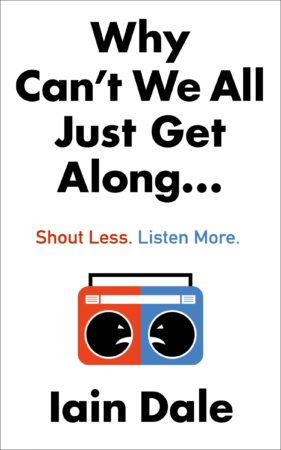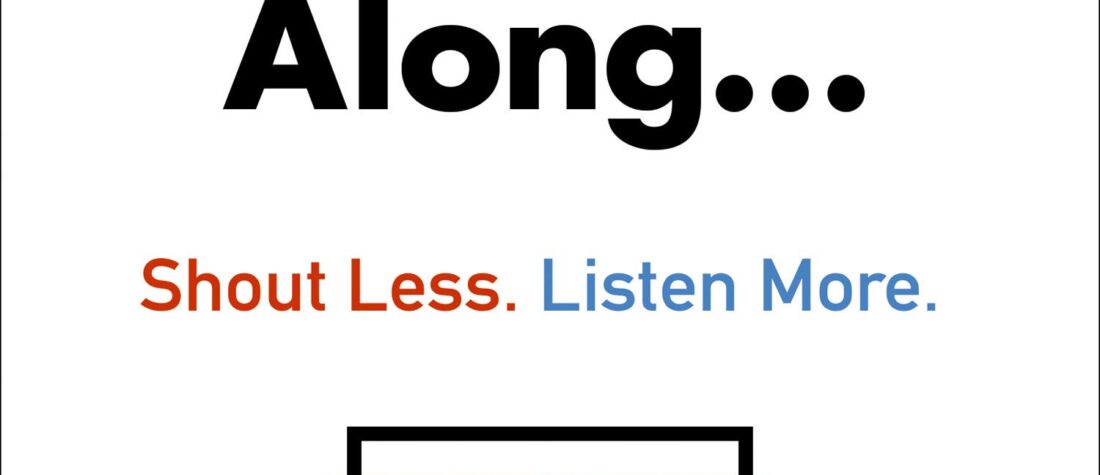
The rise of the 24-hour news cycle and social media has massively increased news output and has brought the public to within virtual shouting distance of the powerful. Like blogging before it, Twitter and Facebook have democratised the public sphere and have been the effective death knell of deference. So goes the thesis of Iain Dale’s latest book, Why Can’t We All Just Get Along…
Ostensibly the purpose of the book is to explain why public discourse has declined and how we can learn to disagree politely again.
He lays the blame for the decline at the door of journalists (particularly broadcasters) and politicians alike. Journalists, too focused on the ‘gotcha’ question, are more interested in catching out politicians and entertaining rather than informing the public, while politicians like Priti Patel – who, Dale assures us, is personable and charming off mic, is robotic when the red light flashes on in the studio – engage only to deliver the party line along with some carefully crafted soundbites.
Though Dale says that he is not a natural writer, he is capable of being quite funny. That said, the odd gag brings more of a ‘nice try’ grimace rather than an actual smile, as in the case of his needing to ‘watch more porn’ in reference to Suzanne Moore’s comments on ‘Brazilian transsexuals’.
The book was born of two ideas – Dale’s own idea of an autobiography (inspired by Emily Maitlis’s Airhead, a collection of thirty or forty anecdotes from her career) and a proposition from a publisher about the aforementioned ‘decline’ and how we should try to ‘disagree more politely’. These two ideas don’t conflict fatally, but are rescued by Dale’s engaging tone.
Dale covers a lot of ground. He seeks to give a bit of nuance to the issues dominating current discourse – Brexit, the environment, race and religion. His interviews and interactions, be they with the great and the good or Joe Public, offer a concise summary of the world of politics.
Social media and blogging are central to his argument about the decline of public discourse. He is no stranger to the disruptive impact of technology – his blog, Iain Dale’s Diary, was voted the most influential political blog by The Guardian in 2005.
The anecdotes of Dale’s career are interesting – particularly his interviews with Boris, his formula for getting him to open up on air is an entertaining insight into the mind of our PM – but they can overshadow the analysis in the narrative.
Dale is one of the most well-connected people in Westminster, and it is this, combined with his incisive commentary, that makes the book a worthy read for any politico.


